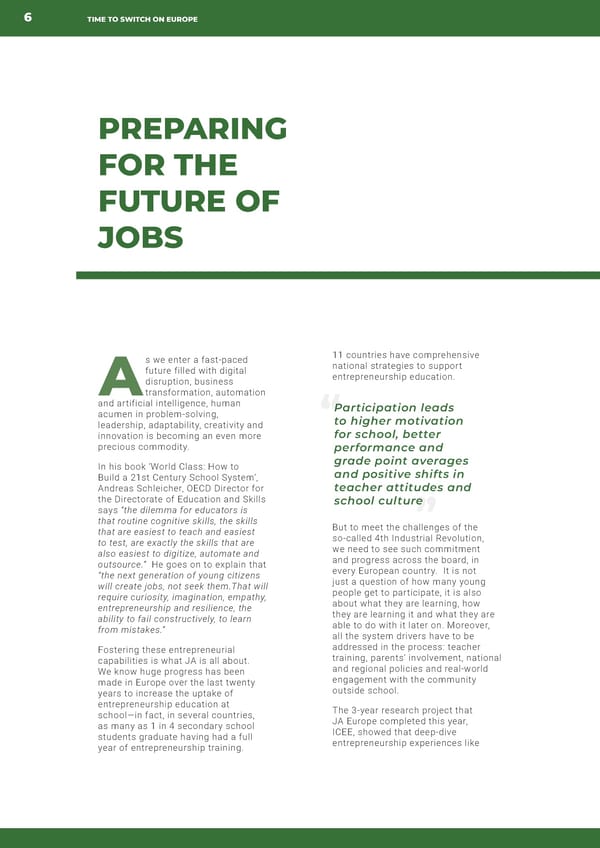6 PREPARING FOR THE FUTURE OF JOBS 11 countries have comprehensive national strategies to support entrepreneurship education. But to meet the challenges of the so-called 4th Industrial Revolution, we need to see such commitment and progress across the board, in every European country. It is not just a question of how many young people get to participate, it is also about what they are learning, how they are learning it and what they are able to do with it later on. Moreover, all the system drivers have to be addressed in the process: teacher training, parents involvement, national and regional policies and real-world engagement with the community outside school. The 3-year research project that JA Europe completed this year, ICEE, showed that deep-dive entrepreneurship experiences like A s we enter a fast-paced future filled with digital disruption, business transformation, automation and artificial intelligence, human acumen in problem-solving, leadership, adaptability, creativity and innovation is becoming an even more precious commodity. In his book World Class: How to Build a 21st Century School System, Andreas Schleicher, OECD Director for the Directorate of Education and Skills says the dilemma for educators is that routine cognitive skills, the skills that are easiest to teach and easiest to test, are exactly the skills that are also easiest to digitize, automate and outsource. He goes on to explain that the next generation of young citizens will create jobs, not seek them.That will require curiosity, imagination, empathy, entrepreneurship and resilience, the ability to fail constructively, to learn from mistakes. Fostering these entrepreneurial capabilities is what JA is all about. We know huge progress has been made in Europe over the last twenty years to increase the uptake of entrepreneurship education at schoolin fact, in several countries, as many as 1 in 4 secondary school students graduate having had a full year of entrepreneurship training. Participation leads to higher motivation for school, better performance and grade point averages and positive shifts in teacher attitudes and school culture TIME TO SWITCH ON EUROPE
 2018 Annual Report Page 7 Page 9
2018 Annual Report Page 7 Page 9